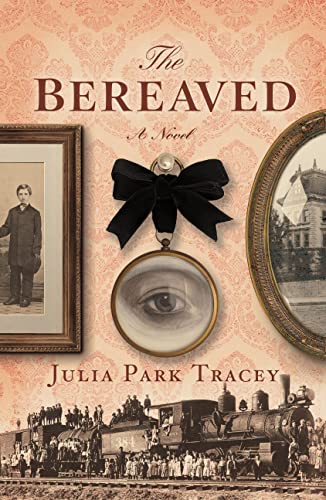The Bereaved
Julia Park Tracey pulls readers immediately into the life of Martha Lozier, a young mother of four who buries her husband on a farm in Newburgh, New York in the opening pages of The Bereaved. With no money of her own and limited legal rights, Martha must live at the mercy of her nearby in-laws, who have problems of their own. Due to legal and ethical challenges, Martha soon escapes with her children to the tenements of New York City, where she struggles to find work as a dressmaker and to feed her family. These events occur in 1859, so readers know the Civil War is brewing. At first Martha pays scant attention to national problems as she counts her pennies, scrambles for money, tries to fend off letches, and worries about the welfare of her children. We cringe as she patches her children’s rags and adds water to their soup to stretch it for days.
Writing exclusively from Martha’s point of view, Tracey portrays a world of destitution and fear. Readers paying attention to omens and remembering the history of the era may guess at plot turns but are unlikely to guess the full scope of Martha’s decisions, failures, and successes. Native-born and Protestant, Martha interacts with the Germans and the Irish who settle in her neighborhood, and eventually rises above her prejudices. Occasionally Tracey may reach too far for the perfect period-specific term or cadence, but that is a rare exception to a beautifully written, well-researched, and compelling book that will keep readers rushing to the end, rooting for the protagonist. With great skill, Tracey bases her novel on the true story of her own relatives.










